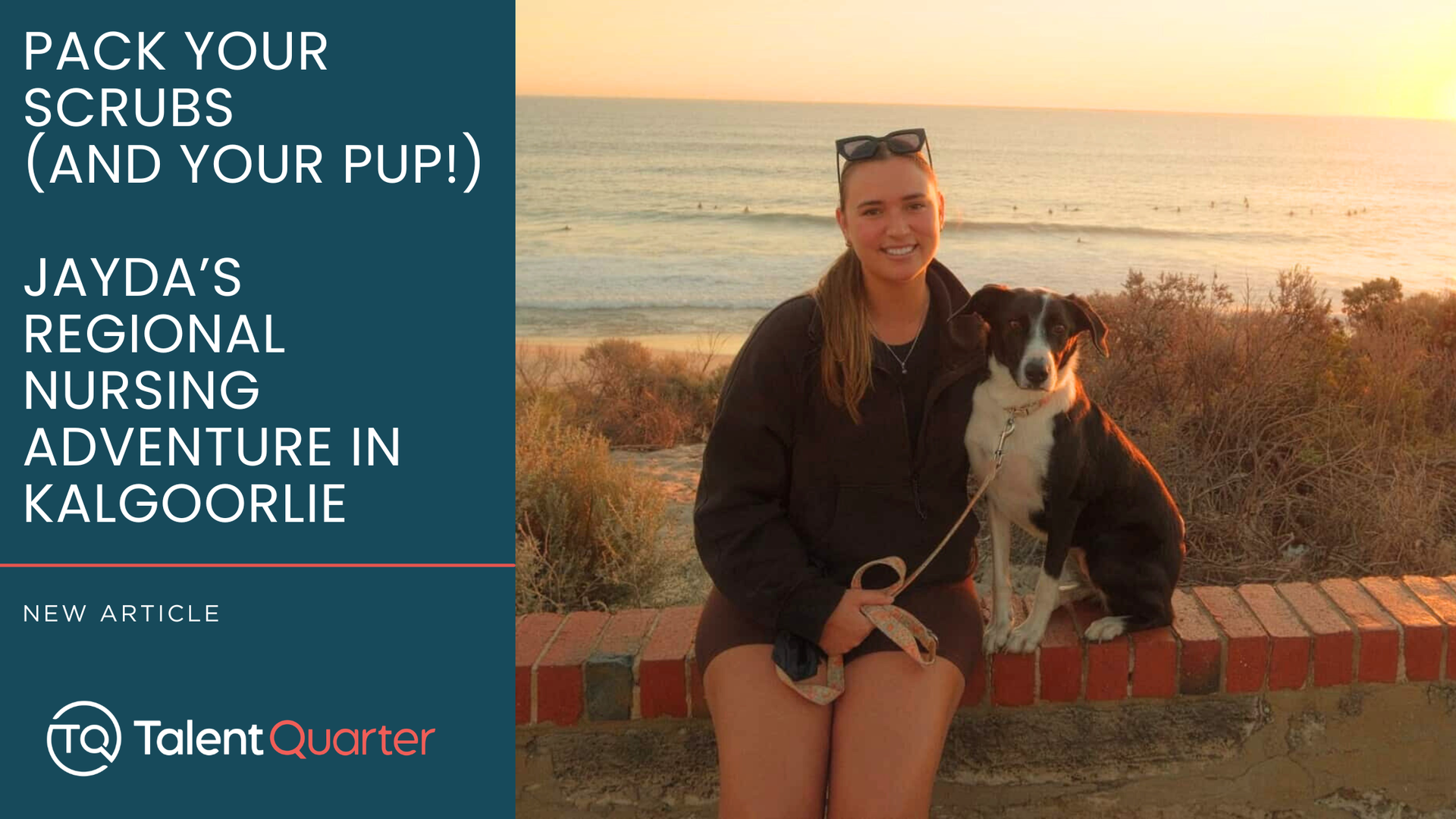Workplace safety – it’s not just physical!
When we think about workplace safety, the first thing that tends to come to mind is the risk of injury from physical hazards. However, an employee’s mental well-being is just as critical, even if not visible to the naked eye.
That’s why it’s crucial workers are ‘mentally fit’ or, in other words, have a good ability to think clearly and make good decisions.
Fatigue and burnout
Mental health is in the spotlight more than ever as organisations have grown to understand the importance of psychological health and safety in the workplace and the causal link which can lead to psychological or physical harm.
And when it comes to adverse impacts, fatigue and burnout must be considered.
Working extremely long hours, particularly across a prolonged period of time, can affect your cognitive function, putting you – and your colleagues and clients – at risk of psychological and physical injury.
At Talent Quarter, we have systems and checks in place to identify risks to both our internal employees and on-hired workforce that include nurses, aged care workers, disability and youth workers and allied health professionals.
Conducting site visits, undertaking risk assessments, and having strong systems in place to manage work hours and overtime are essential to eliminate psychosocial risks or minimise them so far as is reasonably practicable.
Talent Quarter’s on-hired workforce are required to be on high alert, aware of their environment, and play a crucial role in identifying hazards and providing feedback for review.
At times, for a variety of reasons, there can be pressure to work long hours, so we make a point of having respectful conversations with our clients to ensure our workforce gets their necessary breaks, minimising the risk of fatigue and burnout.
Engaging in proactive conversations to manage fatigue is important because the individuals we place, such as nurses or disability workers, are naturally inclined to want to be there for their patients and are therefore willing to work long hours. All organisations need to manage fatigue carefully to ensure their risk is reduced.
Being mentally prepared for the job
Having a poor understanding of your role – potentially through lack of communication around requirements or responsibilities – can have a detrimental effect on your mental capacity to perform it.
For example, you might be brought on to do a certain task, but when you arrive, you’re told to do something else and don’t know what you’re in for. These situations can result in a staff member becoming disengaged, which means their head is not in the right space.
That’s not to mention the risk of physical harm if the task involves operating equipment they are unfamiliar with. Not having a solid understanding of how to use a certain type of machinery can lead to a physical injury.
Organisations must understand their duty of care and be mindful when placing people in roles where they’re unfamiliar with the work environment – be it a residential home, facility or hospital – and/or the personnel. Ensuring a proper induction is provided by an authorised representative at the host site forms the foundation for this process – providing an opportunity to ask questions and engage in dialogue around safety measures and response procedures.
Check in with yourself
Workers have a responsibility to help safeguard their own mental wellbeing and safety.
It’s crucial to check in with yourself on a regular basis. Taking a few minutes to ask yourself questions like: ‘Do I need support?’ ‘Do I have a good work-life balance?’ ‘Do I have a balanced diet?’ ‘Do I need to rest a bit more?’ ‘Am I OK to drive?’
The last question, in particular, is really important in light of concerning road safety statistics. You don’t want to put yourself – or individuals under your care – at risk on the road.
At Talent Quarter, we have an EAP (employee assistant program) called Uprise that offers counselling and wellbeing support services to both our internal employees and on-hired workforce. They can self-check in, receive a mental health score and compare it with previous scores to get a good sense of how they are travelling.
See the signs
In widening the focus of mental wellbeing beyond self-care to look out for others, it can be challenging to see when someone else is struggling with their mental health.
Common indicators can include changes in behaviour, social disengagement and even physical symptoms.
If you see someone struggling, respectfully ask them if they are OK. There are various avenues for support, and often taking the first step and letting someone know you are struggling is the most difficult.
“Let’s look out for ourselves and one another to keep our workplaces safe.”
By James Francis
Risk and Governance Lead at Talent Quarter

Talent Quarter is a trusted healthcare recruitment partner in Australia, connecting qualified nurses, doctors, allied health professionals and carers with organisations in need. We provide locum, permanent, travel and shift-based roles, delivering workforce solutions that strengthen teams, improve retention and safeguard patient care.
LET’S GET CONNECTED
#ConnectionsWithImpact
QUICK LINKS
FIND TALENT
FIND JOBS

Talent Quarter is a trusted healthcare recruitment partner in Australia, connecting qualified nurses, doctors, allied health professionals and carers with organisations in need. We provide locum, permanent, travel and shift-based roles, delivering workforce solutions that strengthen teams, improve retention and safeguard patient care.
LET’S GET CONNECTED
#ConnectionsWithImpact
QUICK LINKS
FIND TALENT
FIND JOBS

In the spirit of reconciliation, Talent Quarter acknowledges the traditional custodians of country throughout Australia and their connections to land, sea and community. We pay our respect to their elders past and present and extend that respect to all Aboriginal and Torres Strait Islander peoples today.
We welcome all cultures, all religions, all colours, all beliefs, all ages, all sizes, all types, all people.

We welcome all cultures, all religions, all colours, all beliefs, all ages, all sizes, all types, all people.

In the spirit of reconciliation, Talent Quarter acknowledges the traditional custodians of country throughout Australia and their connections to land, sea and community. We pay our respect to their elders past and present and extend that respect to all Aboriginal and Torres Strait Islander peoples today.

We welcome all cultures, all religions, all colours, all beliefs, all ages, all sizes, all types, all people.
Talent Quarter. All rights reserved.
Talent Quarter. All rights reserved.



